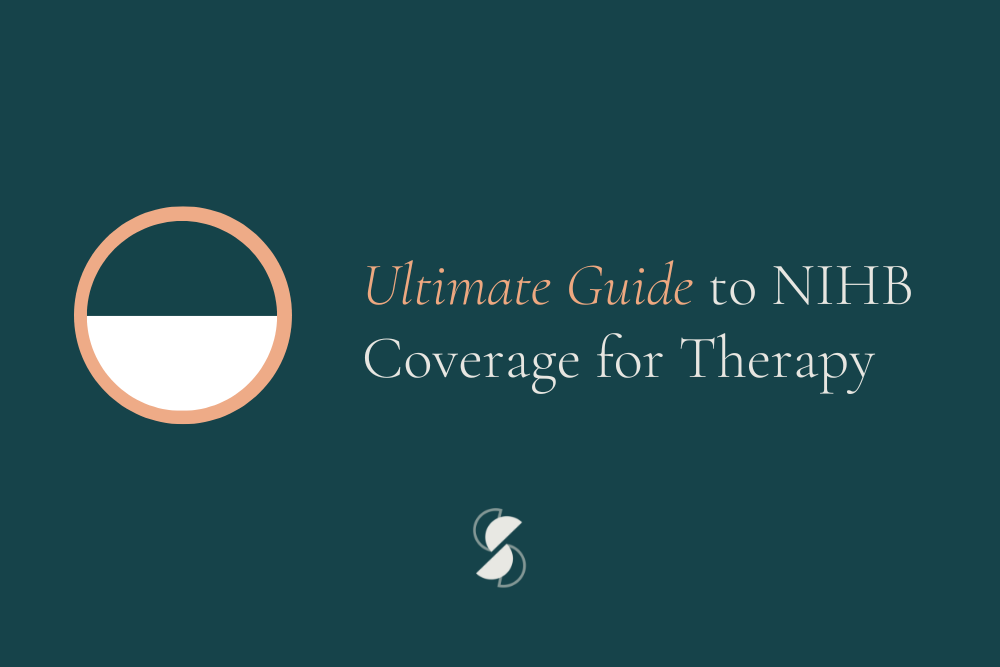Do You Even Care About Me? Navigating Relationship Anxiety

Relationship Anxiety: Building Trust and Connection
Have you ever found yourself lying awake at night, analyzing every detail of your relationship, wondering if your partner truly cares as much as they say they do? I’ve been there myself and continue to learn how to navigate this part of me. I’ve also sat with many individuals who, despite being in healthy relationships, grapple with persistent anxiety that threatens to overshadow their connection.
The truth is, that relationship anxiety is more common than people realize, especially for those who deeply value emotional authenticity and personal growth. Therapy offers a space to explore these vulnerable feelings and practice valuable skills. Maybe you feel stuck in the same argument with your partner, or you’re struggling to move on from someone. Bringing these concerns forward can feel heavy—but the journey is worth it. As you work through it, you may find that your relationship with yourself and others improves simultaneously.
Understanding Relationship Anxiety: You're Not Alone
Let’s dive into a scenario: imagine a brilliant executive who confidently leads board meetings yet, in relationships, finds themselves preoccupied with thoughts like, Do they even like me? How can someone be so successful in one area and feel so unsure in another?
This is common—relationship anxiety often surfaces even in healthy relationships, shedding light on past attachment wounds that may have been dormant or shaped by less healthy experiences. Ironically, the same traits that help us succeed in other areas—critical thinking, intuition, passion, and drive—can sometimes heighten our relationship anxieties.
Common Signs of Relationship Anxiety:
- Constant doubt about your partner’s feelings
- Fear of abandonment or rejection
- Overanalyzing their words and actions
- Difficulty staying present due to future-oriented worries
- Seeking excessive reassurance
Relationship anxiety can also create a self-fulfilling cycle. The more we fear losing connection, the more we may engage in behaviours—such as withdrawing or over-questioning—that create emotional distance, reinforcing our worries.
Building Trust: The Foundation of Security
Trust isn’t about eliminating all doubt—it’s about creating a secure foundation that can withstand uncertainty. In my practice, I’ve found that trust-building is both an internal and external process.
Internal Work:
- Recognizing your attachment patterns
- Understanding how past experiences shape your reactions
- Building self-trust alongside relationship trust
- Practicing self-compassion when anxiety arises
External Work (With Your Partner):
- Establishing clear and consistent communication
- Creating shared agreements about boundaries and expectations
- Practicing vulnerability in small, manageable steps
- Acknowledging and celebrating moments of connection
A simple but effective tool I recommend is the relationship check-in—setting aside time to share what’s come up for you in a situation, such as an argument or misunderstanding, without judgment. Instead of acting on emotions immediately, take a moment to reflect and express them clearly. The goal is to foster understanding and strengthen trust.
Deepening Emotional Connection: Intimacy
True emotional connection can feel both exciting and scary, especially for those who think deeply about relationships. However, the strongest relationships aren’t free from anxiety—they’re the ones where both partners learn to navigate challenges together.
Ways to Strengthen Emotional Connection:
- Practice Emotional Presence – Instead of trying to fix or solve each other’s feelings, work on simply being present with them.
- Create Shared Meaning – Develop rituals or traditions that are unique to your relationship, whether it’s a morning coffee routine or an annual trip.
- Embrace Imperfection – No relationship is perfect. Learn to appreciate the beauty in growth and challenges.
- Build Emotional Intelligence Together – Read books, attend workshops, or engage in meaningful conversations about emotions and connection.
Moving Forward with Courage
Overcoming relationship anxiety isn’t about eliminating all fear—it’s about building the resilience to love deeply despite uncertainty. As you implement these strategies, notice the small changes. Maybe you express vulnerability without hesitation, or you start trusting your partner’s words without seeking extra reassurance.The journey to secure attachment and deeper connection isn’t linear, but every small step strengthens your relationship’s foundation. And sometimes, the very anxiety that feels like an obstacle can become a pathway to greater intimacy—when approached with awareness and compassion.







